Women In Engineering Speacker session
Session 1 : Bridging The Gap Between Industry and Academia
DAY 2 – WEDNESDAY, FEBRUARY 8
Prof. Hoda Baraka
Advisor to Egypt Minister of ICT for Technology Talents Development.
Professor of Computer Engineering at the Faculty of Engineering, Cairo University.
Digital Skilling and Up-Skilling to Get Industry-ready Professionals
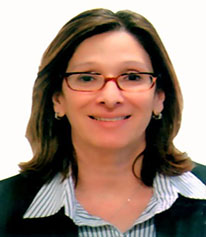
Egypt has made great strides in its Digital Transformation journey where ICT has become a salient feature and one of the key building blocks for development. Under its ICT 2030 strategy, the Egyptian government is undertaking a series of investments, capacity building and training programs, digital government services reforms, and infrastructure upgrades. The strategy calls for launching new initiatives to maximize the contribution of the ICT sector to Egypt’s economic growth by focusing on capacity building, electronics design and manufacturing, and technology parks.
ICT skilled workforce is the corner stone for the growth and flourishing of the ICT sector in Egypt. While focusing on developing skills for the workforce is a necessity, it is not enough to address the needs of today’s workforce and market environment. The pace of change is too rapid, quickly making even typical reskilling efforts obsolete. What is needed is a workforce development approach centered on personalized learning, leadership, experiences, and growth in the flow of life that considers both the dynamic nature of jobs and the equally dynamic potential of people to reinvent themselves. In this session we will shed the lights on a number of initiatives that address the skills gap for the ICT sector and demonstrate the effectiveness of these initiatives on the labor market.
Dr. Hoda Baraka is a Professor of Computer Engineering at the Faculty of Engineering, Cairo University, as well as the Advisor to Egypt Minister of ICT for Technology Talents Development. Currently, she is leading two national skilling initiatives The Digital Egypt Builders initiative DEBI targeting university graduates, and The Digital Egypt Cubs Initiative targeting students in schools from G7 to G11.
She was the Former First Deputy Minister of ICT since 2006 till 2013. From 2002 till 2013, she was also the National Director of Egypt’s ICT Trust Fund, which is established to promote the use of ICT for Development.
Dr. Baraka successfully managed the implementation of several national ICT for Development projects in Egypt and abroad in a number of crucial sectors such as education, e-administration, e-health, etc. Her activities include formulating effective Public Private Partnerships, policies’ development and planning of ICT for Development, ICT projects’ implementation, monitoring and evaluation and human resources development.
Prof. Baraka has been awarded the UNESCO King Hamad Bin Isa Al Khalifa prize for the use of ICTs in Education, for her contribution in the development and enhancement of education in Egypt using ICT. She was one of WEF/UNESCO Partnership for Education Technical Advisory Group on Capacity development, and a former member of WEF Global Agenda Council for Technologies in Education.
Dr. Baraka has more than thirty years of extensive experience as consultant in the field of digital transformation for public and private sectors.
Prof. Aida Elsabban
Former Advisor for the State-Minister of Military Production for Electronics Industries and Energy.
Visiting Lecturer at the Faculty of Engineering, British University in Egypt.
The gap between Academia & Industry: Reasons & Local efforts to bridge this gap
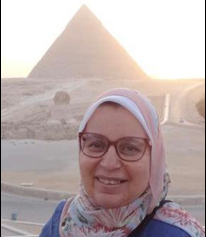
Aida Elsabban, SMIEEE is the Former Advisor for the State-Minister of Military Production for Electronics Industries and Energy with extensive leadership and proven experience for over than (31) years in this field.
She was the first and only female to hold the Chairperson of the Board/CEO position in 2 of AOI (Arab Organization for Industrialization) entities consecutively.
She is currently a visiting lecturer in BUE (British University in Egypt) as well as an active TPC
member in several technical international conferences and national-funded projects. She was a member in the Foreign Relations & African Affairs Committee in the Egyptian Syndicate of Engineers. Since 2021, she has been participating in WomenTech Network International Conference; either as an organizer or as a speaker.
She was previously and is currently a Board member in several entities, such as Digital Economy and Technology General Division, Commercial Chambers Union, where she is currently heading the Technical Committee for “Tawteen” initiative. This initiative aims to automate retailers in line with the country’s policy in digital transformation.
In 2015, Aida participated also in developing the country’s strategy in Electronics industry field named “Egypt makes Electronics”.
In 2022, she was the Honorary Chair of the 1st IEEE WIE ILS (International Leadership Summit) to be held in Egypt. In 2019, Aida was honored as one of the top 30 women- in all life fields in the Egyptian Women Forum. She also received a recognition award in the 36th National Conference for Radio Science (NRSC2019). In addition, she got the 2nd place in the innovation & industrial contest from AOI in 1997.
Aida Elsabban is the Advisor for the State-Minister of Military Production for Electronics Industries and Energy with extensive leadership and proven experience for over than (31) years in this field.
She was the first female to hold the Chairperson of the Board/CEO position in 2 of AOI (Arab Organization for Industrialization) entities.
Aida Elsabban is also a visiting lecturer in BUE (British University in Egypt) as well as an active TPC member in several technical international conferences and national-funded projects. She was a member in the Foreign Relations & African Affairs Committee in the Egyptian Syndicate of Engineers. Since 2021, she has been participating in WomenTech Network International Conference; either as an organizer or as a speaker.
She was previously and is currently a Board member in several entities, such as Digital Economy and Technology General Division, Commercial Chambers Union, where she is currently heading the Technical Committee for “Tawteen” initiative. This initiative aims to automate retailers in line with the country’s policy in digital transformation.
In 2015, Aida participated also in developing the country’s strategy in Electronics industry field named “Egypt makes Electronics”.
In 2019, Aida was honored as one of the top 30 women- in all life fields in the Egyptian Women Forum. She also received a recognition award in the 36th National Conference for Radio Science (NRSC2019). In addition, she got the 2nd place in the innovation & industrial contest from AOI in 1997.
A. Prof. Rim Barrak
Associate Professor; the head of the Electronics, Physics, and Propagation Department at SUP’COM; and a senior member of the GRES’COM research laboratory at SUP’COM.
Potential win-win opportunities between academia and Industry : the case of SUP’COM
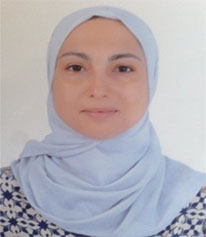
Graduate unemployment is a major challenge for higher education institutions in many countries, particularly in Africa. There is an increasing need to reform higher education curricula to keep them in line with the needs of the labor market and the expectations of companies, which are constantly changing. Thus, strong partnerships are being built between higher education institutions and industry, to bridge the gap between academia and business.
In this Talk, a brief introduction of the Higher School of Communication of Tunis (SUP’COM) will be presented followed by a summary of my professional and research activities. The last part of this talk will be dedicated to the actions that SUP’COM has undertaken with companies to increase the employability of its graduates, leading to a win-win partnership.
Rim Barrak received a B. Eng. degree from the École Polytechnique de Tunisie in 2000, an M.Sc. in telecommunications from the École Polytechnique de Montreal (Canada) in 2002, and a Ph.D. and post-doctoral lecture qualification in Information and Communication Technologies from Higher School of Communication of Tunis (SUP’COM) in 2007 and 2019, respectively. She is currently an Associate Professor; the head of the Electronics, Physics, and Propagation Department at SUP’COM; and a senior member of the GRES’COM research laboratory at SUP’COM. Her research interests lie within the area of wireless communications and microwave engineering, including the design of tunable and multiband RF circuits and SDR receivers for multi-standard wireless systems. She has published more than 50 papers in international journals and conferences.
Session 2: Women in Microwave Engineering
03:30 PM – 5:30 PM
DAY 2 – WEDNESDAY, FEBRUARY 8
Dr. Dalal Najib
Senior Director for the Science and Engineering Capacity Development Unit at the Policy and Global Affairs (PGA) Division of the U.S. National Academies of Sciences, Engineering and Medicine (NASEM).
Title: Building Science Capacity in Africa Through Partnerships
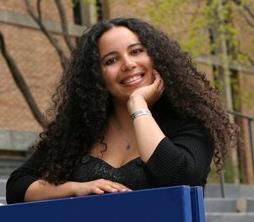
In this presentation, I will give an overview of the science and engineering capacity development activities at the U.S. National Academies of Sciences, Engineering, and Medicine (NASEM). I will particularly focus on programs that foster partnerships between U.S. researchers and their counterparts in Africa and the Arab region. For example, NASEM developed the very successful Arab-American Frontiers of Science, Engineering, and Medicine program over the past decade which resulted in joint collaborations, research grants and fellowships. Using the same model, my unit recently launched a similar Frontiers program on the African continent. Through the presentation, I will also highlight NASEM programs that promote the participation of women in STEM and science policy.
Dr. Dalal Najib is the Senior Director for the Science and Engineering Capacity Development Unit at the Policy and Global Affairs (PGA) Division of the U.S. National Academies of Sciences, Engineering and Medicine (NASEM). Dr. Najib manages the Arab-American and US-Africa Frontiers programs. She has worked for nearly 10 years on the USAID- funded Partnerships for Enhanced
engagement in Research (PEER) program where she managed the sub-Saharan Africa, Middle-East and the Central Asia regions. She is the principal investigator of multiple
awards from various agencies, including NSF (6), USAID, NASA and DOD. Dr. Najib first joined the National Academies as a Mirzayan Science and Technology policy fellow at the Aeronautics
and Space Engineering Board (ASEB). She holds a PhD in Climate and Space Sciences and Engineering and a master’s degree in public policy (MPP) from University of
Michigan. Prior to that, she received her undergraduate degree in aerospace and aeronautical engineering from Supaero (Toulouse, France).
Prof. Rashaunda Henderson
Professor in the Electrical and Computer Engineering Department andInterim co-Department Head, University of Texas at Dallas
2022 President of the IEEE Microwave Theory and Technology Society (MTT-S) Administrative Committee
Millimeter Wave Integration and Packaging Strategies using Antenna-in-Package
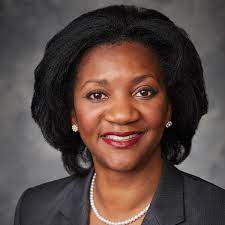
Affordable and high performance front end modules (FEMs) have been identified as key research challenges for millimeter wave communications. While the design of active components and sub-systems has been explored by many research groups, there is still a need to provide integration and packaging strategies that can meet system requirements and not inhibit the performance obtained at the wafer level. Antenna in package (AiP) is a key technique enabling the realization of future millimeter wave FEMs.
This presentation highlights the design, modeling, and characterization of planar antennas integrated into enhanced quad flat no-lead (eQFN) packages in WR8 (90GHz-140GHz) and WR5 (140GHz-220GHz) frequency bands. Further, the design, modeling, and simulation results of chip-to-package transitions, transmission line structures, and antenna feed elements are provided. The simulated bandwidth and gain of the integrated antennas is compared with their standalone versions. A description of the designed test vehicles and measurement methodology for antenna bandwidth, and radiation pattern characterization in the WR5 frequency band is also presented. To facilitate accurate design of the antennas and packaging transitions, high frequency material characterization is needed. This work will include results on the dielectric properties of the packaging substrates and overmold materials utilized in the frequency ranges mentioned. Dr. Henderson will also highlight her career journey and transition from industry to academia. She will share how volunteering activities in IEEE MTT-S have been an asset in her academic roles and advancement.
Rashaunda M. Henderson (S’91-M’99-SM’06) received the BSEE degree from Tuskegee University, Tuskegee AL in 1992, graduating with highest honors. She received the MS and PhD degrees in electrical engineering from The University of Michigan, Ann Arbor, MI, in 1994 and 1999, respectively. Upon graduation, she joined Motorola Semiconductor Product Sector in Tempe, AZ and worked as a research and development device engineer in the microwave and mixed-signal technology labs for wireless embedded systems. She joined The University of Texas at Dallas in 2007 as an Assistant Professor in the Erik Jonsson School of Engineering and Computer Science. She is now a Professor in the Electrical and Computer Engineering Department and Interim co-Department Head. Dr. Henderson is co-founder of the High Frequency Circuits and Systems Laboratory, which facilitates millimeter-wave design and development of components, circuits and integrated packages and antennas for wireless communication systems. She has authored/co-authored more than 100 journal and conference papers/presentations in the field of microwave circuits and electronic packaging for high frequency applications. Dr. Henderson is a Senior Member of the IEEE and the 2022 President of the IEEE Microwave Theory and Technology Society (MTT-S) Administrative Committee. She is passionate about educating the next generation student and encouraging them to seek careers in science, technology, engineering and mathematics.
Prof. Rhonda R. Franklin
McKnight Distinguished Professor of Electrical Engineering Abbott Professor of Innovative Education in the Institute for Engineering in Medicine University of Minnesota Department of Electrical and Computer EngineeringAdvanced Integration Approaches for 5G/6G Technology Applications
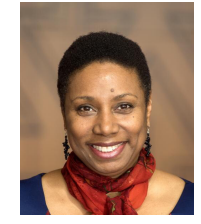
Managing power consumption and providing effective integration strategies for heterogenous integrated systems are two of the most important, yet challenging aspects of building high performance complex integrated systems operating in 5G and 6G regimes where available power diminishes. This talk will highlight enabling technologies we have been developing to enhance integrated systems performance in the microwave to sub-mm-wave frequency regime. In wired integrated systems, vertical via integration methods of copper interconnects, commonly used in silicon CMOS integrated circuits, are developed using nanowire technology to enhance performance of designs operating up to 180 GHz. In wireless systems, chip to chip communication is studied and solutions are developed to reduce losses associated with printed interconnects and vias using novel wireless approaches. Our methods use meta-material free space Fabry Perot antennas to provide high gain and high directive chip to chip coupling, power division, beam splitting, and polarization shifting from a single antenna with uniquely designed metamaterial lenses. Our approaches provide important enabling solutions to reduce power consumption while facilitating effective complex integration of heterogenous system designs that operate into the sub-THz regime.
Rhonda R. Franklin is the McKnight Presidential Endowed Professor of Electrical and Computer Engineering and Abbott Professor of Innovative Education in the Institute for Engineering and Medicine (IEM) at the University of Minnesota (UMN). She has electrical engineering degrees from Texas A&M University (BSEE) and University of Michigan (MSEE and PhD). Her expertise is on high-speed circuits, antennas, sensors, integrated packaging, and material characterization for applications in communications, biomedicine/nanomedicine, and ecology. She has co-authored over 150 publications, six book chapters and 12 patents, disclosures and licenses. In IEEE MTT-S, she has served in editorial roles as associate editor for MWCL and as an inaugural Editorial Board member for the open access Journal of Microwaves. She has chaired MTTS technical & education committees/sub-committees, and co-founded Project Connect to broaden women and under-represented minority participation in microwave engineering. She has received several awards for her research and leadership that include the National Science Foundation PECASE, UMN Sara Evans Faculty Scholar Leader, University of Michigan’s ECE Willie Hobbs Moore Distinguished Alumni Lecture Award, IEEE N. Walter Cox Service Award, UMN College of Science in Engineering George Taylor Award for Distinguished Service, IEEE Diversity and Inclusion Award, and University of Michigan’s ECE Distinguished Educator Award.
Dr. Oras A. Al-Ani
lecturer and postgraduate supervisor at the College of Electrical Techniques Engineering, Baghdad, Iraq
Development of Novel Antenna Designs for Modern Wireless Communications Systems
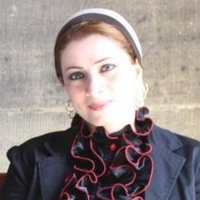
Antennas play a crucial role in modern wireless communication, enabling the transmission and reception of electromagnetic signals over a wide range of frequencies. In recent years, there has been a significant increase in demand for antennas that can support higher data rates and longer ranges, as well as those that can operate in challenging environments such as urban areas and inside buildings. To meet these challenges, researchers have been developing new types of antennas that leverage advances in materials science, metamaterials, and computational techniques. These include ultra-wideband antennas, multiple-input multiple-output (MIMO) antennas, beamforming antennas, and adaptive antennas, among others. Additionally, there has been a growing interest in the use of small, low-profile antennas, particularly for mobile and wearable devices, as well as in the integration of antennas and other wireless components into a single device. Overall, the field of antennas for modern wireless communication is rapidly evolving, with new technologies and design approaches emerging to enable more efficient and effective wireless communication. In this talk, the design, simulation and implementation of various antenna types will be presented in details. This include: coplanar-fed patch antennas, slotted MIMO antennas, compact antennas with defected ground structure .. etc. The aim was to design compact light weight patch antennas with reflection and radiation characteristics that meet the market requirements and overcome the existed challenges and limitations. Most of the designed antennas were fabricated using PCB technology and their performance (such as S-parameters and radiation pattern) was tested in the anechoic chambers and compared with that obtained by simulations. The results have shown excellent agreement between simulated and measured results and have shown the great feasibility of the designed antennas for modern wireless communication systems.
Dr. Oras A. Al-Ani received the B.Sc and M.Sc degrees in Laser and Optoelectronic Engineering from Al-Nahreen University, Iraq, in 2000 and 2002, respectively, and Ph.D. (2018) in Nanomaterial-based solar cell from Newcastle University, UK. During her M.Sc study, she investigated the amplification of microwave by using maser electron beam interaction.
Dr. Al-Ani is currently working as a lecturer and postgraduate supervisor at the College of Electrical Techniques Engineering, Baghdad, Iraq, since 2005. During her Ph.D. study (2014-2018) at Newcastle University, she had the opportunity to demonstrate and teach in several labs at different levels at the school of Electrical and Electronics Engineering, where she worked as a Teaching Assistant and Lab demonstrator. After passing several teaching and engaging training modules at Newcastle University, Dr. Al-Ani was recognized as Associate Fellow with British Higher Education Academy. She also worked as a visiting researcher at the school of enginnering/ Newcastle university during 2020-2021.
Along with her research activities within Emerging Technology and Materials group at Newcastle university, she is interested in microwave engineering (Antennas & propagation) and related- advanced applications, such as indoor & outdoor wave propagation, as well as antenna designs for modern communication systems. Dr. Al-Ani has more than 40 published works in local and international journals, in addition to her participation in several international conferences. Oras has organised several social and scientific activities that are related to women in the UK, such as IEEE Student committee member (role: chair of women in science and engineering). Moreover, Dr. Al-Ani was officially represented Newcastle University students at the NUS National Conference in Brighton as an elected self-defining woman delegate to vote on policy that determines NUS’ priorities for the upcoming year.
Eng. Ajibike Eunice AKIN-PONNLE
Energy Harvesting in Modern Age: a means to Sustainable Smart City Automation’

With enormous academic works and findings on ‘Energy Harvesting Mechanisms’ that enable the use of naturally replenishing energy sources from the immediate environment, to support smart city realization, there is need for all-embracing rapid transfer of knowledge from research activities to adaptable conventions that are practicable, and with participatory roles by the industries. Smart city is any municipality that is concerned with modernisation by using information and modern communication technologies to acquire, process, and disseminate information; manage resources and services efficiently; and improve the standard of living of the people. Several means have been explored to provide energy needed to sustain smart city implementation; some of which are considered harmful, and many practices that promote modernisation and industrialisation are often times disruptive to the ecological system. This has made many governments around the World to issue different legislations that drive consumption of green energy to enhance ecological sustainability. Meanwhile, energy harvesting schemes answer most of smart city energy challenges. In this talk, the need for application-specific green-energy harvesting in this modern time is emphasized, and the concern here is to make the subject more practicable; with more involvement of various stakeholders. Interests need be developed in the design of simple harvesting circuits for electrical energy converters; load configurations; and storage systems, from ambient sources such as wind, water, heat, sunlight, wastes, etc. This is important for various needs of homes, small groups, and the society. Increased mobilisation for green and sustainable smart city integration is an all-important task for both the academia and industry to embark upon. There is need for synergy between them; for training and re-training of the public, in the form of short courses and internships that are carried out at the Universities and research centres from time to time; which are to be funded by energy industries and governments. To this end, they will be able to continually solve real-world challenges of smart city development and sustenance.
Ajibike E. Akin-Ponnle received B.Eng and M.Eng (Control Engineering option), degrees in Electrical and Electronics Engineering from The Federal University of Technology Akure, (FUTA), Nigeria, in 2003 and 2014 respectively. She is a Researcher with Institute of Telecommunications, University of Aveiro, where she is currently studying towards her PhD degree.
She worked briefly at Shokei Gakuin University, Yurigaoka, Miyagi, Japan as a Lecturer between 2010 and 2011. She was an Associate Researcher with Informative Nanomechanics laboratory; Kuwano Laboratory, in the department of Nanomechanics, Graduate School of Engineering, Tohoku University, Tohoku, Japan in 2011, where she developed interest to work on micro-energy harvesting from vibrations. This research birthed some of her publications and, her thesis on ‘Development of a Vibration Based Electret-Cantilever Micro Energy Harvester’ in 2014. She was an Invited Speaker to many Japanese social groups in Sendai, in the form of expository talks about African/ Nigerian culture.
She worked as a Research Engineer between 2012 and August 2017 with Engineering Materials Development Institute (EMDI); an arm of National Agency for Science and Engineering Infrastructure (NASENI), of the Federal Ministry of Science and Technology, Nigeria. She was involved in many research and development activities of EMDI-NASENI; where the World Bank Centre of Excellence was situated. She had hands-on exposure to many state-of-the-art facilities for nanotechnology and renewable energy. At EMDI, she was secretary, and later became the ‘chairman’ of Research and Development, R&D (social) Group until she transferred her service to join The Federal Polytechnic, Ile-Oluji, Ondo state, Nigeria; where she has risen to the position of Senior Lecturer.
At Federal Polytechnic, she was the first female Engineer of the department of Electrical and Electronics Engineering, and she joined others to be fronting the successful activities of the newly established Institution in teaching; research; and community development. Due to her passion for renewable energy research, she lead the group that modelled and fabricated an electronic cabinet for cocoa beans processing to enhance the indigenous notable cocoa processing occupation of Ile-Oluji; the Polytechnic host community. In addition, as part of her activities at the Federal Polytechnic, she was among the group that developed ‘Electromagnetic Braking System of Induction Motors for Domestic and Industrial Safety’.
Engr. Akin-Ponnle is a registered Engineer with Council for the Regulation of Engineering in Nigeria, COREN, and a member of Nigerian Institute of Electrical and Electronic Engineers, NIEEE. She is a member of Nigerian Society of Engineers, NSE, where she has been a recipient of merit awards two times in 2015 and 2016; once as the Assistant Technical Secretary of NSE Akure branch. She is a member of Association of Professional Women Engineers of Nigeria, APWEN; where she has been an outreach speaker and promoter of Science; Technology; Engineering; and Mathematics (STEM) to young females. She has served in various capacities of Committees to NSE and APWEN, including organizing national conferences of COREN and NSE hosted by her branch. She is a member of ‘The Materials Science and Technology Society of Nigeria, MSN’. Her research interests include, energy harvesting; micro/nano electromechanical (MEMS/NEMS) devices/sensors; instrumentation; IoT; smart cities automation, and ecological sustainability. She has authored many journal articles on ‘Energy Harvesting’ particularly in the aspect of smart city development.
